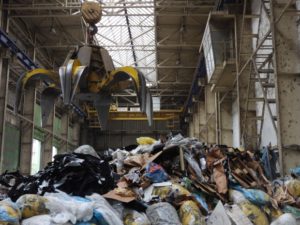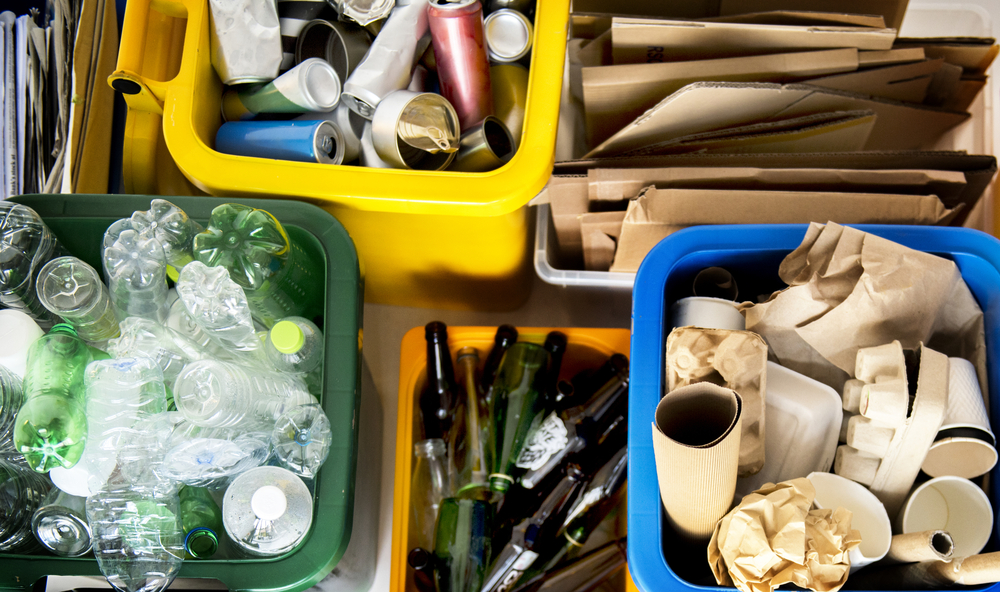Under the plans, all local authorities by 31 March 2026 will collect the required recyclable waste streams: glass; metal; plastic; paper and card; food waste; and garden waste. Local authorities will continue to be able to charge for garden waste collections, as “the economic and environmental case is not strong enough to proceed” with the initial proposal to make them free, the department said.
Local authorities and waste collectors will be required to collect plastic film as part of the plastic waste stream by 31 March 2027.
The rules will also apply to businesses, excluding garden waste and plastic film, by 31 March 2025.
Material will also be allowed to be collected commingled.
On residual waste, Defra reveals a proposal to “include in guidance an expectation” that it is collected at least fortnightly, “helping avoid long waits for smelly waste to be removed”.
Government will also work with local authorities to assess the collection of residual waste more frequently, especially in urban areas.
Our ambitious plans will help every household, business, school and hospital in the country to recycle more
- Environment minister Rebecca Pow
‘Ambitious’
Environment minister Rebecca Pow said: “Our ambitious plans will help every household, business, school and hospital in the country to recycle more. We have listened to councils and come up with a system that will increase recycling in a way that does not clutter our pavements with numerous bins and smelly food waste collections for weeks, making recycling simpler and more effective.
“This will help us to make the most of our finite and precious resources, while reducing carbon emissions and protecting our precious environment from harmful waste.”
Exemptions
The government is proposing new exemptions to make sure that waste collectors will be able to collect dry recyclables together, in the same bin or bag, and collect organic waste together, to reduce the number of bins required. This will come as a relief to many MRF operators and local authorities who collect commingled recycling.
Also, while Defra has set out that every local authority will be required to collect food waste for recycling by 31 March 2026, this will not apply to those linked to a “long-term residual waste disposal contract”. This, Defra outlined, is typically energy from waste or mechanical biological treatment contracts.

It has been decided that “this means they need longer to transition”.
“In these cases, the local authority will be given a bespoke transitional arrangement in the commencement regulations, which will set out the date by when they need to bring in weekly food waste collections,” the department explained.
Long-term transitional arrangements will only be provided to specific local authorities, which are tied into complex waste disposal contracts that cannot be amended without paying large contract variation penalties.
“We engaged extensively with affected local authorities between December 2022 and March 2023 and required that they provide evidence that their waste disposal contract presents an unavoidable barrier to the introduction of food waste collections by 31 March 2026.”
Funding
In terms of funding available to local authorities, Defra said its response commits to providing “reasonable funding” to cover the costs to local authorities arising from new duties placed on them. Funding for local authorities will be provided through a combination of new burdens funding and payments through extended producer responsibility (EPR) for packaging.
EPR payments are due for October 2025.

Environment secretary Therese Coffey said: “Simpler recycling will help us all recycle more easily, doing our bit to help save the planet and make the best use of precious resources that we use every day.
“Alongside weekly food waste collections, we are ending the postcode lottery of what you can put in your bin so that wherever you live in the country, you will be able to recycle the same products with confidence.”
Bins
Defra first consulted on consistency plans in 2019, before launching a second consultation in 2021. After Rishi Sunak announced plans to scrap plans for “seven bins” last month, Defra rebranded this as ‘Simpler Recycling’.
The plans will apply to all homes in England, including flats. Similar measures will apply to non-household municipal premises, including businesses, hospitals, schools and universities.
Responses
First responses to ‘Simpler Recycling’ appear positive. Gavin Graveson, senior executive vice president for Northern Europe zone at Veolia, said: “Today’s simpler recycling announcement is a welcome step forward to improve the quantity and quality of material that we process.We now need to quicken the pace of UK recycling rates by ensuring that packaging is designed to be reused, repaired or recycled.”
Paul Vanston, chief executive of the producer group INCPEN, added: “INCPEN’s recent citizens surveys show there is huge public support for the idea of clear, unambiguous recycling instructions on packaging that match-up with what can be put into household recycling bins wherever citizens live across the whole country.
“Today’s announcements move us several steps closer to turbo boosting the country’s packaging recycling rates on metals, paper and card, glass, hard and soft plastics and cartons whilst enabling citizens to be super-confident when applying simpler recycling behaviours at home and at work in future.”
Waste tracking
Alongside the Simpler Recycling plans, Defra also said it will launch a four-week consultation on expanding the definition of non-household municipal premises – so that places of worship, prisons, charity shops and residential hostels could also be covered by the rules.
Other plans today include:
- New proposals to ensure those transporting or making decisions about waste demonstrate they are competent to make those decisions, as well as increased background checks for firms moving or trading waste, ensuring waste is managed safely by approved individuals only. The changes will make it harder for rogue operators to find work in the sector and easier for regulators to act against criminals
- Plans to overhaul the existing record-keeping system for waste tracking so those handling waste will record information from the point it is produced to the point it is disposed of on a central digital system, enabling regulators to better detect waste crime. This will give officials the data and evidence they need to take criminals to task for mismanaging waste. This comes as part of a wider set of reforms aimed at bringing in smarter regulations for businesses











Subscribe for free